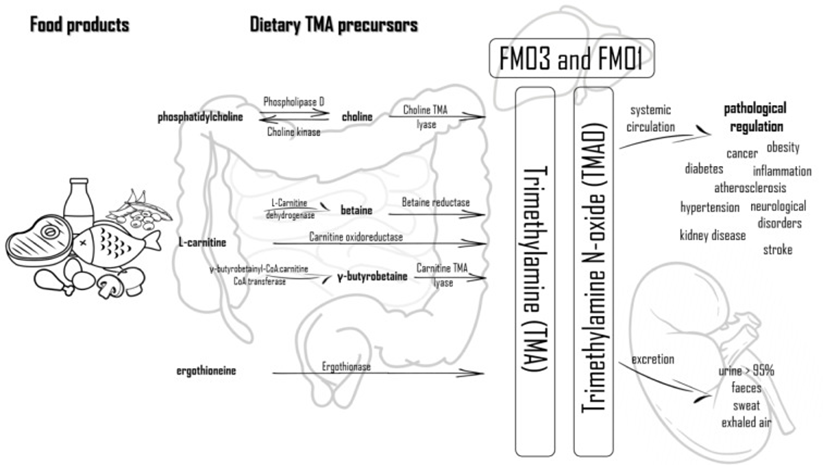Elevated levels of trimethylamine N-oxide (TMAO) in the blood are linked to various health issues, including atherosclerosis, heart disease, diabetes, and kidney disease. TMAO is produced in the liver from trimethylamine (TMA), which is formed by gut bacteria from dietary precursors like choline, phosphatidylcholine, betaine, and L-carnitine.
High TMAO levels can lead to endothelial dysfunction, vascular damage, and other cardiovascular problems. Diet, particularly the consumption of red meat and dairy, plays a significant role in TMAO levels, as these foods are rich in TMAO precursors.
TMAO levels are influenced by the gut microbiome's composition and liver enzyme activity. Antibiotics can lower TMAO but also disrupt beneficial bacteria. Elevated TMAO levels are a predictor of major cardiac events, and dietary choices directly impact these levels. For instance, diets high in red meat can significantly raise TMAO levels, while Mediterranean-style diets with less red meat are associated with lower levels.
Ongoing research is exploring the complex interactions between diet, gut microbiota, and TMAO production. Restricting dietary precursors of TMAO might be beneficial for those with high bacterial TMAO production, but further research is needed to fully understand the implications of TMAO in cardiovascular and metabolic health.
Biochemical pathways leading to the production and metabolism of TMA and TMAO and the resulting health consequences

Source: Gungor, Ozkan et al. “Trimethylamine N-oxide and kidney diseases: what do we know?.” Jornal brasileiro de nefrologia, S0101-28002023005046502. 1 Dec. 2023, doi:10.1590/2175-8239-JBN-2023-0065en This is an Open Access article distributed under the terms of the Creative Commons Attribution License (http://creativecommons.org/licenses/by/4.0/).
CLICK HERE to learn more about TMAO, health consequences, the ODX ranges, etc.